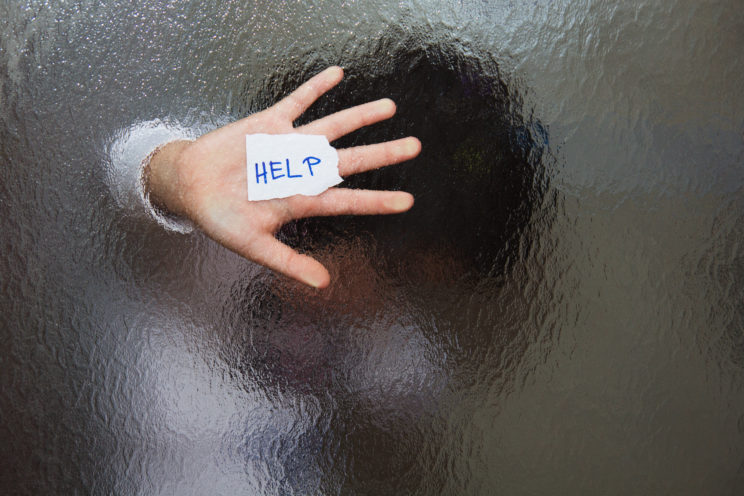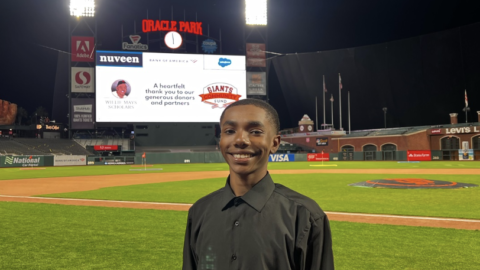The pandemic presented a worst-case scenario for many domestic violence victims trapped indoors with their abuser. But for one client of the Bar Association of San Francisco’s Justice and Diversity Center, the lockdown orders offered a chance to escape an abusive relationship, move out of state with her two young children, and get herself back on her own two feet.
Roxanne was an 18-year-old runaway when she first met the much older George (not their real names), and they had two children together. Although George had family in the nearby East Bay, he insisted the family live an unconventional and sometimes dangerous life on the streets of San Francisco with the kids, now 3 and 6.
As his behavior became increasingly aggressive and manipulative-he forced her to have sex with him and tracked her phone-Roxanne sought the help of the Cooperative Restraining Order Clinic. The court granted her temporary legal and physical custody of the children and ordered George to stay away.
But the case was dismissed when she failed to appear in court. That’s when the case became complicated. George filed an ex parte request for temporary emergency orders whereby he requested sole legal and physical custody of the children. The ex parte request was denied pending hearing, and the matter was continued multiple times. He also pursued criminal child abduction charges against Roxanne, which the district attorney’s child abduction unit investigated.
The clinic referred Roxanne to the Justice and Diversity Center (JDC), where it was assigned to Gaurav Bali, one of two full-time lawyers at JDC who handle domestic violence cases and related family law matters.
After Bali reviewed the procedural history, pleadings, and scheduled hearings, he immediately refiled Roxanne’s restraining order request. George went to court and filed an emergency request to return the children to California. He also pursued criminal child abduction charges against Roxanne.
Legally, Roxanne was in a bind. Bali had to convince the judge to grant her a restraining order despite her leaving so abruptly and without the court’s permission. And because she didn’t have a move-away order, George would still have visitation. But since this all happened in the early days of the pandemic lockdown, when video visits were the norm, she was able to remain in Washington the entire time.
After a contested hearing, the judge granted the new restraining order. Bali then sought a move-away order for Roxanne even though she had already left town. According to Bali’s supervisor, Family Law Supervising Attorney Antonia More, judges generally frown upon a parent moving away without the other parent’s consent.
“Judges are very clear that both parents need to play a role,” More said.
But in this case, the same judge who granted the restraining order and knew the history of the case granted the move-away request, finding that it was in the best interests of the children to remain in Washington with Roxanne and that George wasn’t able to show that he had rehabilitated himself.
“Move-aways are some of the most complex cases in Family Law and are extremely disruptive to family relationships,” said Julie Saffren, an adjunct professor at the University of Santa Clara School of Law. “For that reason, courts do not grant permanent move-aways unless they have enough information about the situation to know move-away orders are in the best interests of children. When a history of violence is in the mix, as it was here, that’s a strong factor the court must consider by law.”
Saffren noted that the litigation took place as California courts struggled to adapt to the COVID-19 pandemic. George opened a separate custody case, the venue for a permanent move-away order.
“In the meantime, the court ensured the children were safe in the temporary custody of the nonviolent parent out of state while still maintaining contact through video visitation with the parent the court deemed was the perpetrator of domestic violence,” she said. “This was the right outcome and was no doubt facilitated by the fact Mother had a lawyer assisting her.”
Roxanne and her children are now thriving in Washington State, Bali and More said.
“Some clients you can’t forget,” Bali said. “If she had done things right, it would have been much easier for me, but at the end of the day, this is why I do what I do. To be able to affect one person’s life, they will remember us until the end of time. So that’s what makes me feel good.”
About the Author:
Laura Ernde is a San Francisco-based writer and communications consultant. She has covered legal affairs for more than a decade, as a journalist and former editor of the California Bar Journal.




